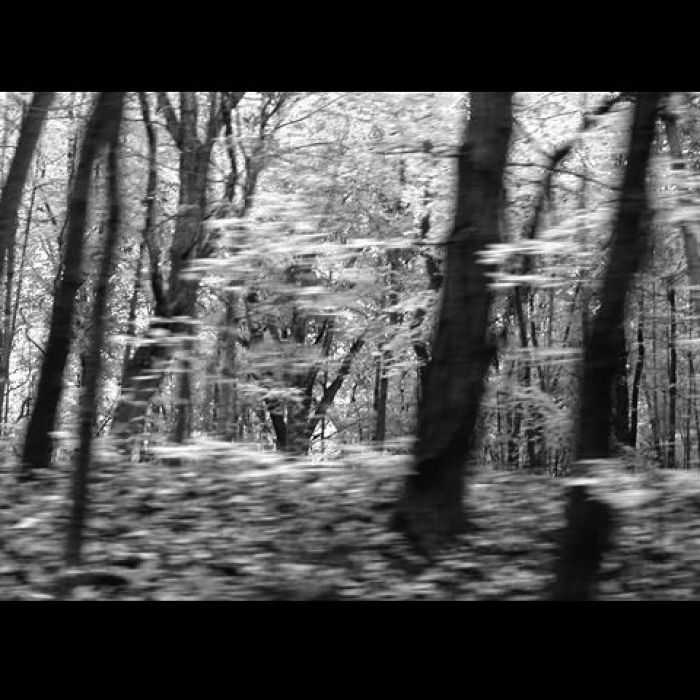Sleeper Coach by Zelienople (Review)

Originally a trio consisting of Matt Christensen (bass, guitar, organ, vocals), Brian Harding (clarinet, piano, guitar), and Mike Weis (percussion), Zelienople grew out of a dissatisfaction with the trio’s existing musical projects, and a desire to explore more atmospheric pieces. In 2002, they released Pajama Avenue, an absorbing album that found the trio perfectly combining lush-yet-dense atmospherics and drones with more recognizable song structures, and full realizing the strengths of both. The result was a disc that was psychedelic by any definition of the word, and yet structured enough to keep it from meandering or heading too far off into left field.
For their latest full-length, the trio has greatly expanded their sound, literally and figuratively. The most noticeable change to the band is the addition of guitarist Neil Jendon, who has been an active member of Chicago’s improv/experimental scene. Furthermore, Sleeper Coach finds the band eschewing, to large extent, the song structures that helped define Pajama Avenue. Sleeper Coach is much more oriented towards deep guitar drones and layers of noise and fuzz, with the only real structure provided by rhythmic loops, themselves fairly indistinct and gauzy.
I’ll admit that, during the first couple listens, I found the album less engaging than Pajama Avenue. You’d think that the greater focus on drones, atmospherics, and ambience (best exemplified by tracks such as “Alleyville” and “Curtains”) would be right up my alley. However, such was not the case during the early spins. But I can now say that the disc’s subtler, less structured nature has definitely grown on me. The more I’ve listened to the disc, or simply let it draw me in, the more accomodating I’ve found its often alien, surreal soundscapes to be.
“Softkiller” was the first track that really caught my ear, due in large part to the driving bassline around which everything else — Christensen’s strained, gauzy voice, the mirage-like guitar textures — spirals and is slowly drawn into. As the song progresses, it seems to be constantly fading away, as the wordless vocals fall back and are enveloped by the churning layers of noise and drone.
At times, “Underneath” almost feels like a remix of Pajama Avenue’s material, and as such, is perhaps the strongest link to the band’s older form. Again, the spiral bassline provides much of the structure, in addition to brushed drums that sound so distant, they may as well have been recorded somewhere across the state line. Meanwhile, soft layers of guitar — some playing definable melodies, some just picking the occasional chiming notes, and others just letting the delay pedals do the work — fade in an out. Christensen’s voice makes an appearance as well, but hushed, as if afraid he’ll disturb the musical proceedings.
At times, it’s difficult to see what contributions Weis makes this time around, as Sleeper Coach’s rhythms are largely drum-free, relying more on basslines and hazy loops. Chances are, his various percussive instruments are simply slathered in effects to the point that they just don’t retain their original shape. However, his kit does make an appearance on “Corner Lot,” albeit somewhere off in the distance and telegraphed onto a surface of static and billowing drones.
One can almost picture the band performing this one live. The stage is lit only by the light from the effects pedals and maybe a projection of some surreal imagery (such as the forest-rushing-by scenery dotting the album’s cover). Meanwhile, the band looks more like mere shadows, backs turned to the audience, hunched over their instruments, eyes closed while they slowly rock back and forth in time with the music, the 6 1/2 minutes seemingly stretching out by the hour.
Come to think of it, the same could be said for any of Sleeper Coach’s tracks, as they all have the same hypnotic, surreal, time-stretching feel about them.
Still, there are moments when the disc does lose some cohesion, when the band gets too lost in their new, less-structured environment. As mentioned before, “Alleyville” and “Curtains” are two such tracks. While the band evokes all manner of lovely sounds and textures from their instruments, the lack of structure means they just end up swimming in place and going nowhere.
But given how much the album has grown on me, the “weaker” moments may very well grow on me as well, given enough time. As with the rest of the album, Sleeper Coach does require a bit more patience than the band’s previous work, but so far, the time and effort have been well worth it.